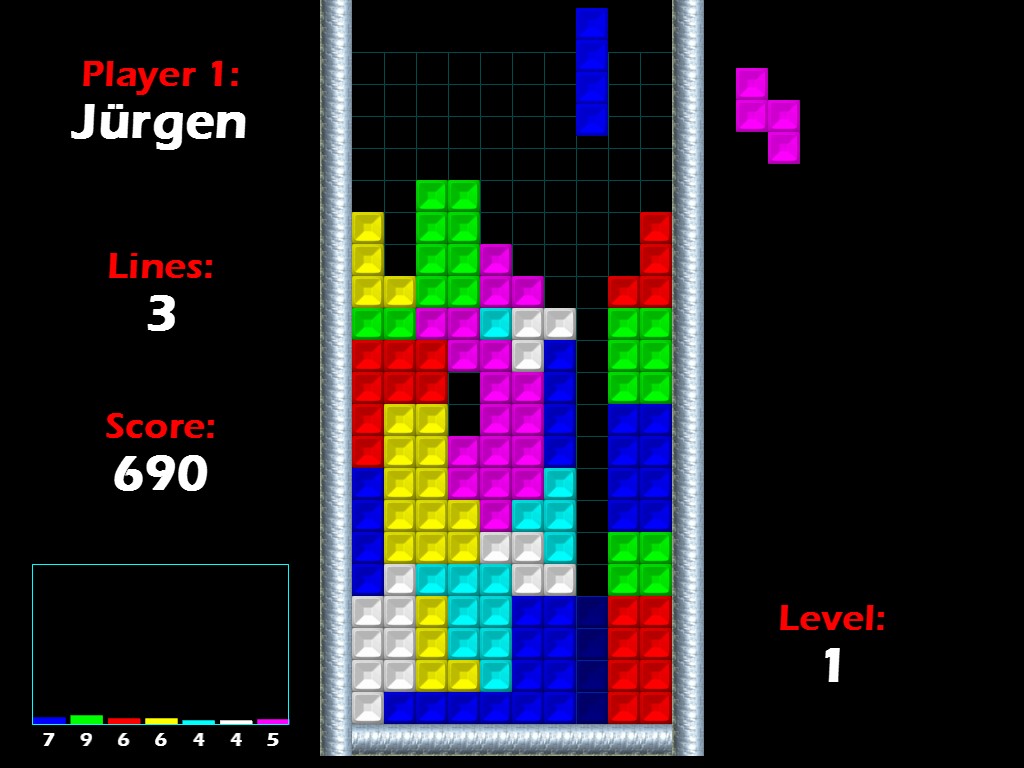30 Jun 2014
"Levels" Game Design Pattern
Summary
- If you've heard of a term "Level Design", this is much simpler than what they say.
- Level essentially is an act of converting a Variable into higher dimention equation.
- Let's say there's a variable called "game experience points", which you earn every time you beat enemies.
- If that's the only points you can collect during the game, what it produces is a really "severe" competition.
- When you align all the players by how much they've earned game experience points, you soon realize that there are people who's earned too high for you to beat, since they devote so much time into game playing.
- That limits the motivation of competition, or motivation to grow as a player.
Benefit of Level System
- Here comes in a level system, which will "convert" the points into fewer goals a player can pursue: levels.
- Level sets this rule where the higher level a player reaches, the more points you need to level up 1 more step.
- This will essentialy soften the competition, with less steep curve.

- Implication is that this will make the game live longer, as players are evaluated less harsh each other.
More Implications from actual games
- Think about a Dragon Warrior or a Final Fantasy which only gives you experience points, not converting to levels.
.png)
- First of all, it would be really hard to see how strong you become when game progress.
- And since character's strength directly relates to the experience points, when you play longer, you character becomes too powerful to design game balance(e.g. enemies parameter).
- Because there's a level which gives you clear view how strong you character becomes, you can be aware/pround of your progress in the game. If often results more word-of-mouth spread among their friends.
And now into modern games
- In recent games(especially online), it's common that you can "buy" levels under the name of "items".
- Reason why I consider those items as "levels" is that any conversion that will end up with less variables are influenced by the logic above.
- And lastly, advice from me: Always set the converting ratio higher than previous level. That's the golden rule of level up system.
29 Jun 2014
"Mega Jump" game analysis
What is "Mega Jump"?
- It's a game where a character keeps moving upward(y-axis) direction by collecting stars, while gravity towards opposite direction keeps pulling a character to the ground.

- As long as you can keep collecting stars to bounce him up, you'll keep scoring.
- As seen in the screen shot above, there are "boosts" you can collect to empower players for exciting actions.
Analysis of the game
- When you look at the game components, it's incredibly few: it's got a moving player character, as well as stars(scoring objects), and obstacles you should avoid hitting.
- It uses its physics engine wisely, by limiting the player's eye into one (y-axis) direction.
- If you keep hitting the stars, it'll accelerate its velocity toward moving direction, resulting straightforward "Catharsis"(described in this pattern).
- Also it's so easy to fail this upward moving combo. Just one wrong iPhone tilt would kill the character, resetting all stage points.
- This instant excitement and stress in "Stress and Catharsis" is what makes this game addictive.
- Because it's easy to restart and you can compare to see whether you have beat previous try, the game makes a player want to try again and again.
Issue
- While this simple game is very pleasing to play, it's essentaially "beat the level" type of game.
- So when a player thinks "I've done all the techniques this game requries", a player will quit playing this game.
- That's the reason it has many "powerups", "boosts", trying to make players think it has whole lot more aspects to play.
Making the game live longer
- This is a harder issue to solve, since it's pretty much the game core logic a player thinks he's played enough.
- So you could say "the game has lived long enough, it's time to make other 'spinouts' using the same character".
- Another try might be adding "real person interaction", such as introducing battle feature to the game.
- This one is though something you should be careful of, because a player is really sensitive on level match system.
- If another player's level is too high to compete, a player loses his motivation to compete. Providing a good match depends on player community size, which often is uncontrollable variable.
- So, it should be more of "searching an answer from maniac players" question.
- Try looking for reasons why some players won't just quit playing, why they keep enjoying every tiny aspects of the game.
- And try to estimate what level or skill a player has to have in order to enjoy the game with that extent.
- Once you find out some of popular maniac way to enjoy the game, then you can add extra tutorial or extra game mode focused for that game play.
28 Jun 2014
"Stress and Catharsis" Game Pattern
Brief Explanation
- This is one of the most powerful game design pattern I've seen, and also simple to understand.
- Every game should have certain kind of "stress" coming ahead, and when a player overcomes that stress, a player should feed some kind of "Relief".
- When there's a set of "stress and relief ahead", we start wanting more of them.
- As a result, game becomes addictive, as long as they can provide a combination of "stress and catharsis"
Catharsis Definition
- In Wikipedia, an explanation of Catharsis is "any extreme change in emotion that results in renewal and restoration".
Applying to a game
- It's almost impossible NOT to find this pattern in a game.
- Any game comes with its set of rules, a player inevitably suffer from some sort of stress. It can just be as simple as learning new game rules, stronger enemies, or more complicated game elements.
- If we can provide a Catharsis in return, a player then can have motivation to keep playing the game.
- Just a simple example of Tetris, a classic game.

- When aligning tetris blocks, you have hard time sorting them out. That's the inevitable stress part of the game.
- Then, suddenly you have this bar that can destroy so many lines at once. Here, your emotion is changed completely into a joy.
New Game Idea using this pattern
- Since it's a broad concept, I don't talke about one new game, but more general advise how to turn a game into a great game.
- Pick one game, and list all the stress point you can think of as a player.
- And also list how they can overcome these stress, and what kind of emotion they'll release.
- Think whether it's too much stress in advance, and also make sure these reward by overcoming stress is well given.
Tetris Example
- The tetris example above, I've seen an advanced tetris game that adds more complicated blocks that's harder to use.
- Stress increases by this feature, but I don't think it adds any extra Catharsis to the game.
- If tetris's Catharsis is all about earsing many lines at once, I would add a "dot" block that can penetrate exsiting blocks.
- So even if you missed to fill lines, later on, there's a chance to "fill" theses lines by inserting a "dot" block.

- That should contribute to the game Catharsis more directly.

.png)



